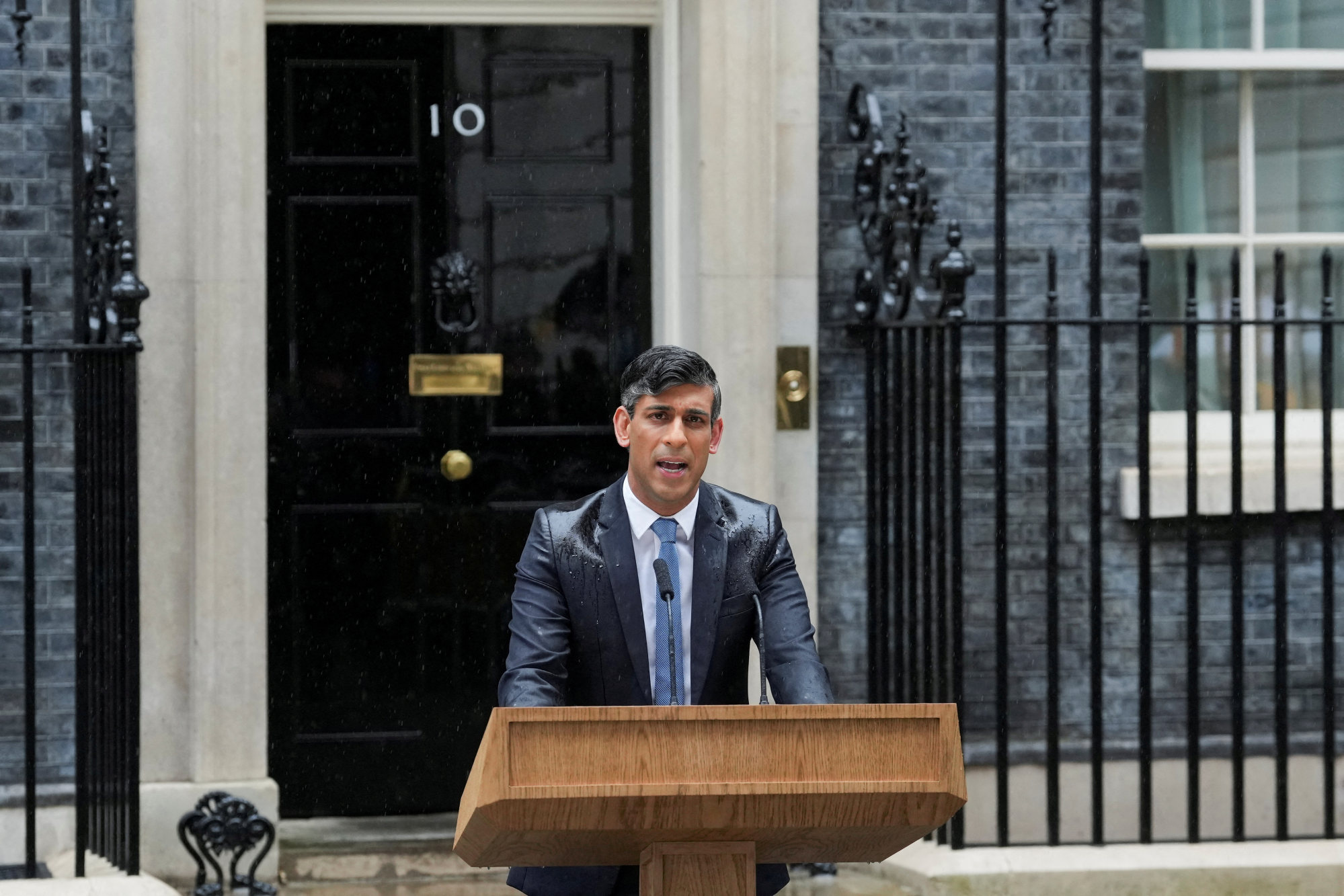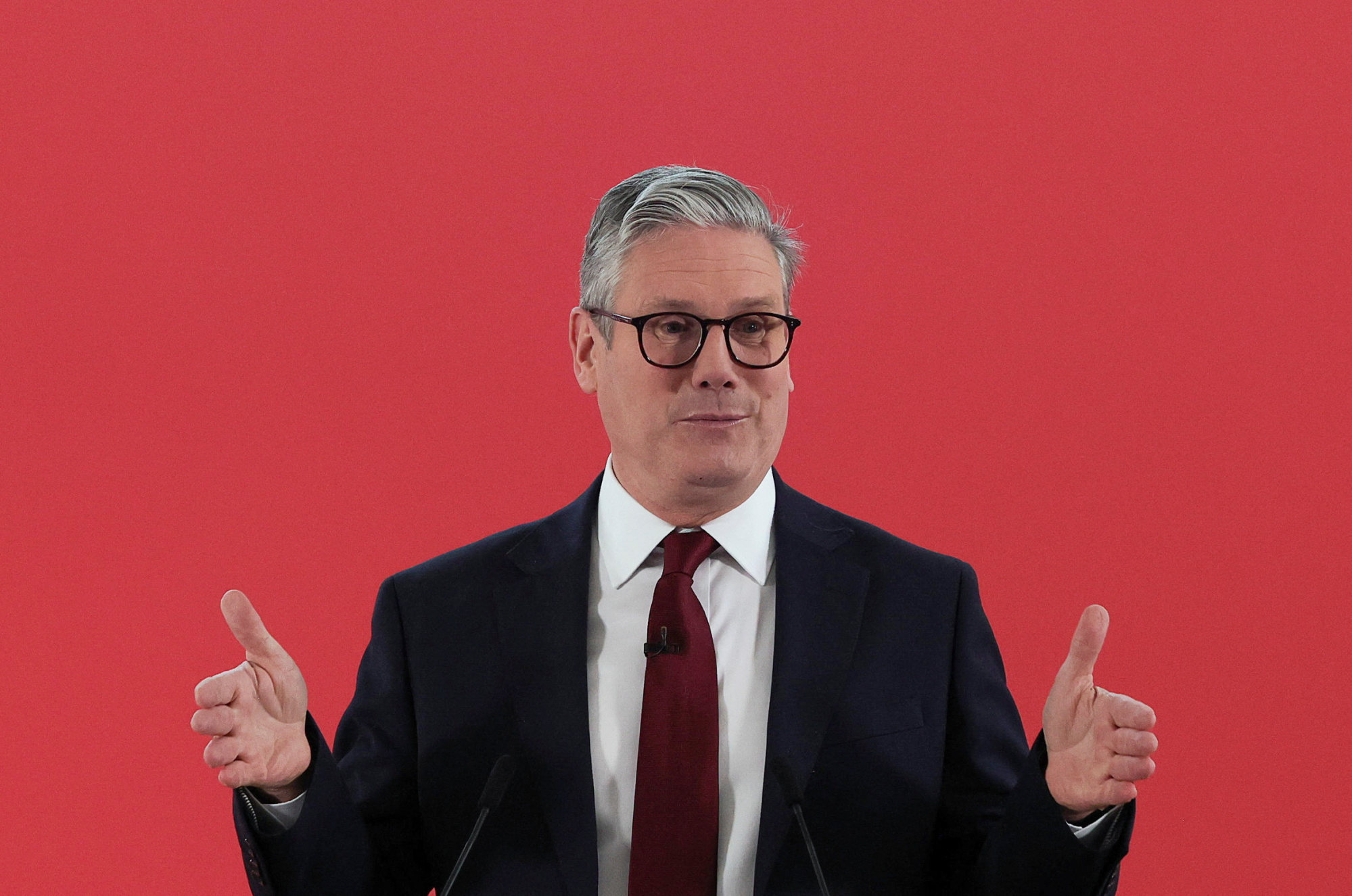Analyses suggest Starmer needs to improve Labour’s performance by 125 seats over former leader Jeremy Corbyn – more than double the challenge standing between Tony Blair and a majority for his first win in 1997. It would be the biggest turnaround in the post-war era.

It meant that when Starmer took over in 2020, Labour officials thought his tenure would be like Neil Kinnock’s, Labour’s former leader before Blair who improved the party’s prospects, but fell short of election victory in 1992.
A collapse in Conservative support under Boris Johnson, Liz Truss and then Sunak altered the calculation. The door to 10 Downing Street suddenly appeared open, especially coupled with Labour’s resurgence in Scotland – where it has fared poorly for over a decade – against the ruling Scottish National Party.
A key part of the strategy is also to target so-called Red Wall seats, the traditional Labour districts in former industrial areas of England that switched to Johnson’s Conservatives in 2019.
Labour’s director of strategy, Deborah Mattinson, dubs them “hero voters”, and a string of local, mayoral and parliamentary election wins in recent years points to Labour’s plan working.
“As it stands, it looks like the only question that will be answered by this campaign is the size of the Labour victory,” said Nigel Fletcher, teaching fellow at the politics and government centre at King’s College London.
Even so, there are jitters. Senior Labour figures say they are scarred by former leader Ed Miliband’s failed election campaign in 2015, when both Labour and Conservatives expected the left-wing party to win on polling day. Kinnock’s defeat more than 30 years ago still looms large among party veterans.
To avoid a repeat, Labour’s campaign director Morgan McSweeney and shadow Chancellor of the Exchequer Rachel Reeves have tried to make the smallest target possible for Tory attacks, ditching plans to spend £28 billion (US$36 billion) a year on green stimulus and meticulously costing all of its policy commitments.
Some have likened it to former Labour chancellor Roy Jenkins’s legendary description of Blair approaching the election “like a man carrying a priceless Ming vase across a highly polished floor”.
Reeves has spent years reminding colleagues that Labour has never won an election without polling better than the Conservatives on economic credibility – a historic weakness for the left-leaning party.

Restoring ties with business that were damaged under Corbyn, who Starmer kicked out of the parliamentary party to illustrate how much it has changed, was a key priority.
Still, Starmer’s effort to present Labour as a government-in-waiting has drawn intense criticism. Brexit is a major bugbear among some voters who want Starmer – a staunch Remainer – to reverse or at least water down the UK’s divorce from the European Union.
Starmer has refused to engage, in large part to avoid alienating Brexit supporters in Red Wall areas.
The Labour leader has also angered supporters by backing away from major spending pledges, to prevent Sunak’s party from digging up traditional Tory attack lines that Labour is profligate with the public finances.
And Starmer’s refusal to call for a ceasefire early on in the Israel-Hamas conflict continues to cost the party support among British Muslim voters.
The recent local and mayoral elections, though giving Labour a string of victories as the Conservative vote collapsed, still pointed to potential problems facing Starmer’s party. Specifically, the danger is that Labour gets squeezed from the left via the Greens in some districts.
But arguably the biggest risks facing Starmer and his party will come if or when Labour enters government.
Part of the reason Labour has backed away from major spending commitments is because it doesn’t want the Tories to accuse the party of not having a plan to fund them – a challenge made harder by Sunak’s government diverting fiscal headroom toward tax cuts.
Though polls suggest voters are wise to the Tory tactics, and are not enamoured with the prospect of further cut backs in public services to pay for them, it still poses a dilemma for Labour.
The fear is that even if voters cut Labour some slack, their patience may not last long if conditions take too long to improve.

